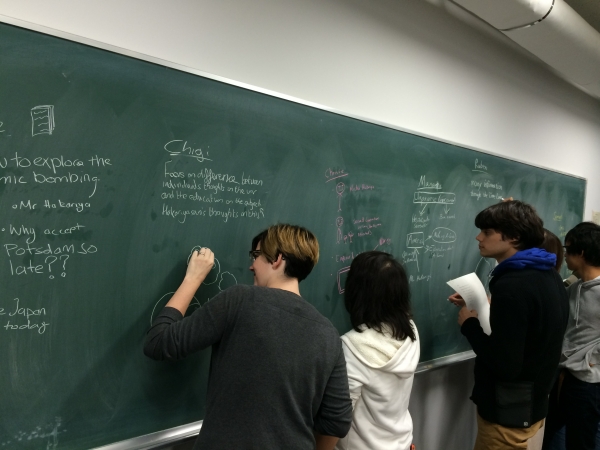
執筆・高橋 弘司 英訳・長谷川 健治
「被爆者証言翻訳を通じて学ぶ核問題」(Nuclear Issues Through the Translation of Hibakusya Accounts)。そう題した講義名の授業が横浜国立大学で昨年10月から半期の予定で進められた。「NET-GTAS」会員でもある同大学の長谷川健治准教授(現代史)と高橋弘司准教授(ジャーナリズム論)が2人1組で担当。広島、長崎の原爆をはじめ、ビキニ水爆実験、福島第1原発事故とこれまで4度に渡り、核の惨禍に直面した日本の特異な歴史を学び、現代人として核にどう向き合うべきかを考える授業だ。
初年度にあたる今年は、米国、英国、フランス、スペインの外国人留学生4人と、日本人学生5人が履修。使用言語は原則、英語だ。15コマの授業の前半は、原爆をはじめとする核問題に関する歴史や課題などを講義や講演を通じて学び、後半には広島原爆の被爆者証言の翻訳実践を積むというスケジュールだ。
授業前半には、長崎県が主導する「被爆体験講話事業」とコラボし、長崎原爆の体験者、計屋道夫さん(77)を講演に招請したほか、別の授業で本学を講演に訪れたビキニ水爆実験で被災の第五福竜丸元船員、大石又七さん(80)の証言映像を活用。原爆がいかにして広島、長崎に投下されたのかを追ったドキュメンタリー「The Day After Trinity」や広島平和記念資料館が所蔵する記録映画なども視聴したうえで、学生同士にディスカッションを促していた。
これらの授業で学生らにとって最も印象的だったのは、長崎の被爆者、計屋道夫さんの証言だ。計屋さんは講演で、被爆直後の長崎の惨状を詳述、荼毘に付される多数の犠牲者を目撃したことを振り返りつつ、「戦争で恐ろしいことの1つは、人の死に慣れてしまうこと。もう1つは食糧が亡くなること」と明かした。そして計屋さんは「今でもアメリカが憎い」とも吐露した。米国にもたびたび講演に出かけている計屋さんは米国人が憎いのではなく、「あんなことをやったのに、いまだに核兵器を持っている米国の体制が憎い」という。核軍縮が遅々として進まない国際社会の矛盾を突いた計屋さんの言葉に、多くの学生が衝撃を受けた様子だった。
また、核保有国を含む様々な国からの留学生と日本人学生の混合クラスならではの気付きもあった。広島、長崎の原爆について母国でどう学んだかのテーマで、学生同士で意見交換をしたところ、米国では真珠湾攻撃や原爆で第二次世界大戦終結が早まったことくらいしか学ばず、英国でも原爆のことはほとんど学ばないなど出身国によって、「平和教育」に大きな違いがあることが浮き彫りになった。
後半は、留学生と日本人学生からなる2つのグループごとに、広島の被爆者、伊藤晶さんの証言の英訳に取り組んできた。長谷川、高橋両准教授は「チャレンジングな授業を通じ、学生がどう原爆や核問題への理解を深めて行くのか期待している」と話している。
*******************
(英訳)
The class “Nuclear Issues Through the Translation of Hibakusha Accounts” was taught at Yokohama National University from last October by two members of NET-GTAS, Hiroshi Takahashi (Associate Professor, Journalism) and Kenji Hasegawa (Associate Professor, History). The class examines Japan’s experiences surrounding nuclear issues including Hiroshima and Nagasaki, Bikini, and Fukushima.
This class began this academic year. In this first year, the enrolled students consisted of 4 international students from the U.S., the U.K., France, and Spain, and 5 Japanese students. The class was mostly conducted in English. The first portion of the class was devoted to studying the historical and contemporary issues surrounding nuclear issues through lectures and discussions. The final portion was devoted to translating a hibakusha account.
Early in the semester, we had a guest lecture by Mr. Michio Hakariya, a hibakusha from Nagasaki. This was conducted in collaboration with Nagasaki prefecture’s project for disseminating hibakusha accounts. Later we aired a portion of a guest lecture by Mr. Matashichi Oishi, which was a joint event with another class. We also viewed documentaries such as “The Day After Trinity” focusing on Robert Oppenheimer and the Manhattan Project in addition to documentaries held in the Hiroshima Peace Memorial Museum followed by lively class discussions.
The students seemed to have been especially strongly impacted by the guest lecture of Mr. Michio Hakariya. Narrating in detail the horrific situation in Nagasaki after the bombing, he commented, “One of the scariest things about war is that we get habituated to people’s deaths. Another is the lack of food.” He also stated that he resents America to this day. For Mr. Hakariya, who often goes on lecture tours to America, the resentment is directed not toward the American people but rather their political system which continues to rely on nuclear weapons. Students seemed to be struck by Mr. Hakariya’s pointed critique of the continued difficulties impeding nuclear disarmament.
There was also much to be learned from the diverse backgrounds of the students. Students learned, for example, how Pearl Harbor and the atomic bombings are taught in the U.S., and the limited coverage of the atomic bombs in British education. They were struck by the great regional differences in “peace education”.
As the last portion of this class, 2 student groups comprised of international and Japanese students translated into English the accounts of the Hiroshima hibakusha Mr. Akira Ito. Profs. Takahashi and Hasegawa comment, “We look forward to seeing how this challenging class will deepen students’ understandings of the atomic bombings and nuclear issues.”
 黒板に意見を書き出して情報を共有する
黒板に意見を書き出して情報を共有するパソコンを駆使して翻訳作業を進める
(高橋 弘司 横浜国立大学准教授 NET-GTAS幹事)
(長谷川 健治 横浜国立大学准教授 NET-GTAS正会員)
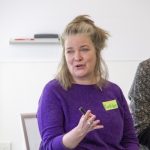
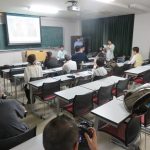
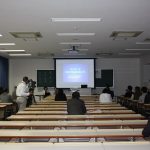
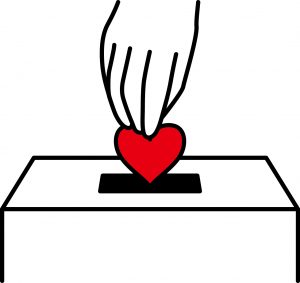
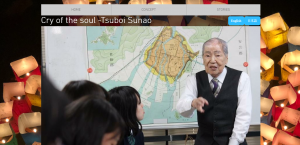
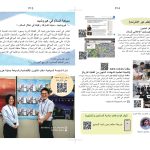


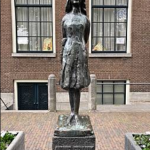

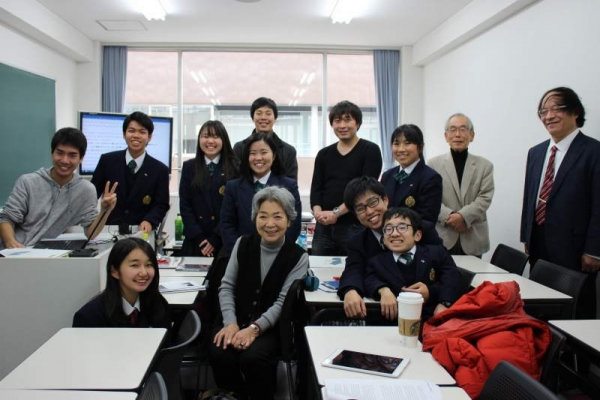
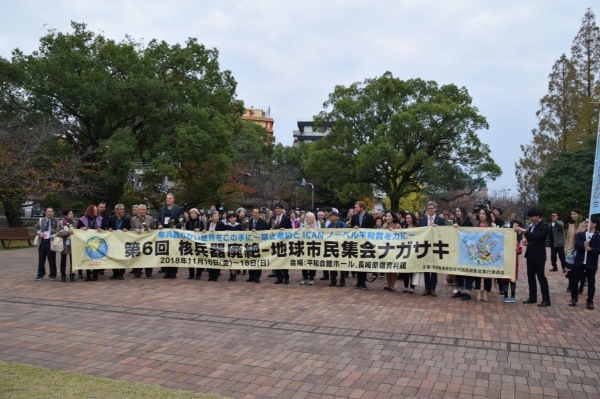
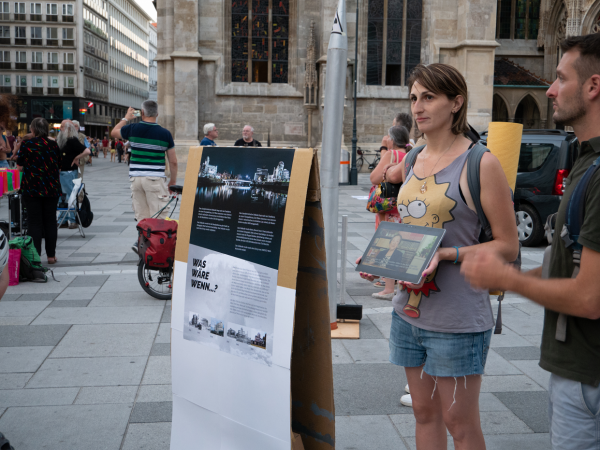
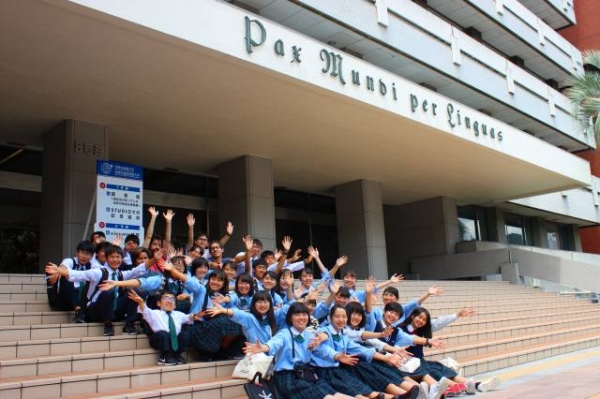
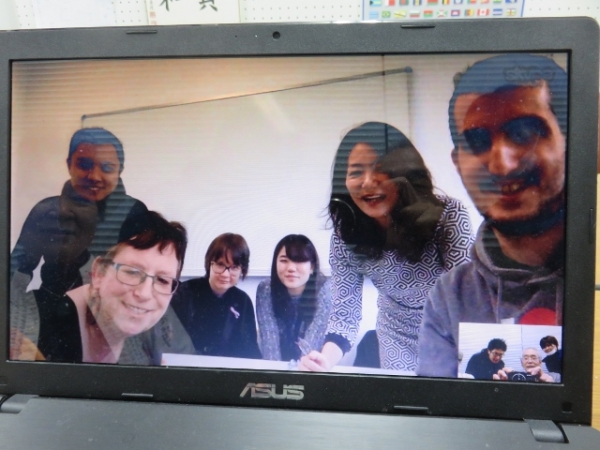
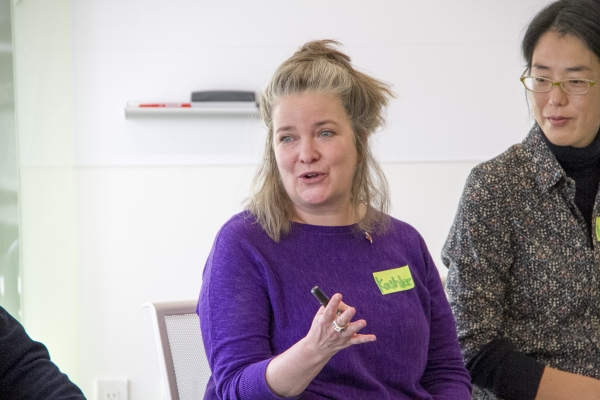
コメントを書く